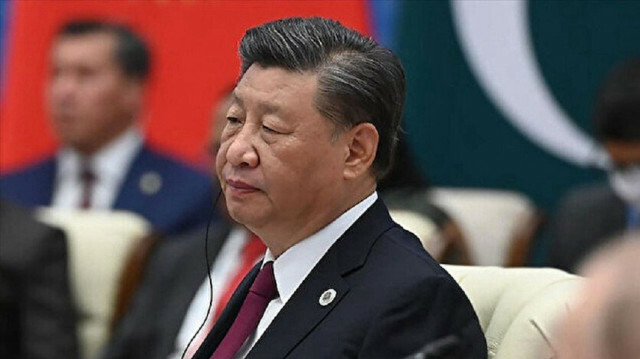
Beijing does not seek to change existing international order or interfere in America’s internal affairs, says president
China has no intention of challenging the US or changing the existing international order, the Chinese president told his US counterpart during their meeting on the sidelines of the G-20 summit in Bali, Indonesia, said Chinese authorities.
"China does not seek to change the existing international order or interfere in the internal affairs of the United States and has no intention to challenge or displace the United States," Xi Jinping said at his meeting with President Joe Biden, according to a Chinese Foreign Ministry statement.
Xi pointed out that bilateral relations between China and the US should not be a "zero-sum game where one side outcompetes or thrives at the expense of the other,” further stressing that the successes of China and the US are opportunities for each other.
He emphasized that while the US adopted capitalism, China adopted socialism and that both sides should respect this difference and not try to reshape each other or change the other's system.
The Chinese president also said at the meeting that freedom, human rights and democracy are the common values of all humanity, adding: "The so-called ‘democracy versus authoritarianism’ narrative is not the defining feature of today’s world, still less does it represent the trend of the times."
-'Taiwan is a red line that must not be crossed'
On Taiwan, Xi called it "the red line that must not be crossed in China-US relations," stressing that it is "China’s internal affair."
"We hope that the US side will match its words with action and abide by the one-China policy and the three joint communiqués," he said.
The US formally recognized China in 1979 and shifted its diplomatic mission from Taipei to Beijing, including Taiwan as part of mainland China, popularly known as the "One China policy," as the shift in the diplomatic recognition of Beijing was adopted by the UN. However, Taipei has insisted on its independence since 1949.
The Taiwan Relations Act, enacted in 1979, has governed US relations with Taiwan. Bilateral agreements known as the Three Communiqués have also influenced ties.
-'China opposes weaponizing economic, trade ties'
On economic rivalries, Xi said that starting a trade or technology war and severing supply chains are against both principles of the market economy and the rules of international trade.
"Such attempts serve no one’s interests. We oppose politicizing and weaponizing economic and trade ties as well as exchanges in science and technology," he added.
The meeting between the two leaders coincided with a period in which issues regarding the economic and technological competition between the world's two largest economies have been occupying the agenda.
-‘Chip war’
Semiconductor chips and integrated circuits, which form the basis for technological devices such as computers, smartphones, airplanes and military equipment, have recently become the front line of the increasing competition between the US and China.
The Biden administration announced approximately $52 billion worth of support for domestic semiconductor production and foreign manufacturers investing in the US with the CHIPS and Science Act, which was approved and enacted in August.
It set forth its intention to limit Beijing's influence in this area by requiring companies that want to benefit from the support not to develop the technological capacity of their production facilities in China.
With the new regulation published on Oct. 7, the US Bureau of Industry and Security added 31 Chinese companies and institutions, including China's largest memory chip manufacturer and largest semiconductor hardware manufacturer, to its Export Control List.
As the restrictions were interpreted as a declaration of a "chip war" between the two great powers, the Chinese side, which argued that export controls violated international trade rules, interpreted Washington's steps as "an effort to maintain its technological hegemony."

